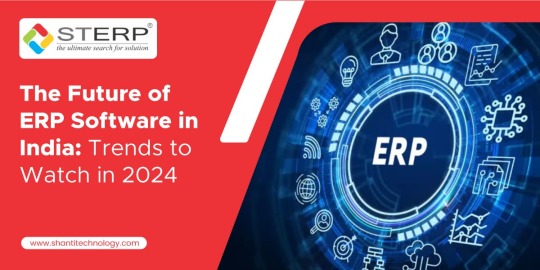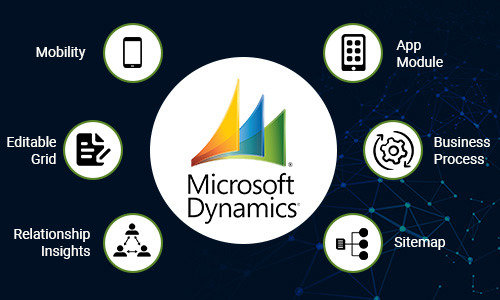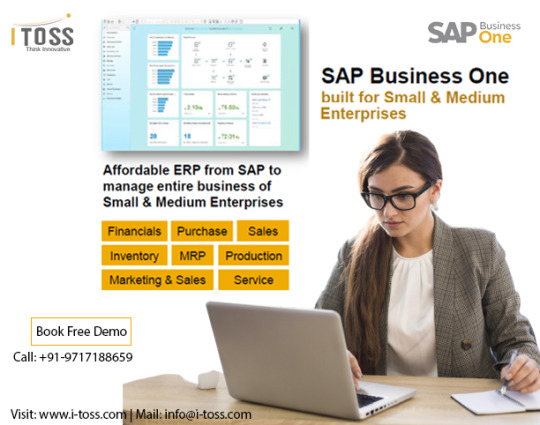#Marketing Cloud Support in India
Explore tagged Tumblr posts
Text
Salesforce Marketing Cloud Services
Codleo is a Salesforce Marketing Cloud Consultant that provides salesforce marketing-cloud integration, Setup & customization. Get our salesforce marketing cloud services to raise your business and brand value.
#Salesforce Marketing Cloud#Salesforce Marketing Cloud Services#Marketing Cloud Consultants#Marketing Cloud Implementation#Marketing Cloud Implementation In India#Marketing Cloud Support#Marketing Cloud Support in India#Marketing Cloud Support in USA#Marketing Cloud Staffing#Marketing Cloud Staffing IN India#Marketing Cloud Staffing in USA
0 notes
Text
Bangalore is a hub for IT companies, startups, and multinational corporations, making it an ideal location to study and work in the field of cybersecurity. The city boasts numerous educational institutions and training centers that offer comprehensive cybersecurity courses to cater to the growing demand for cybersecurity professionals.
#Course Bundles in India#Computer Support in Pune#Cybersecurity Courses in Banglore#Cybersecurity Courses Online#Networking Certifications in Hyderabad#CompTIA Courses Online in India#Microsoft Courses in India#Cisco Courses in Mumbai#Database Systems in pune#Blockchain Courses in Delhi#Programming DevOps in Banglore#Google Certifications in Pune#Google Certifications Online#Cloud Computing in Mumbai#Business & Management in India#Adobe Courses in Mumbai#Design Courses in Pune#Business Productivity in Banglore#Social Media Marketing in India#Microsoft Courses in Online
1 note
·
View note
Text
Choosing The Right MBA In Information Technology College For A Successful Career
In today’s digital-driven world, businesses rely on technology for innovation, efficiency and competitive advantage. This has led to a growing demand for professionals who can bridge the gap between business and technology. Pursuing an MBA in Information Technology College can provide aspiring leaders with the right blend of management expertise and technical skills to thrive in the industry.
Why Choose An MBA In Information Technology?
An MBA in IT equips students with a strong foundation in both business administration and technology. The curriculum typically includes courses in data analytics, IT infrastructure management, software process management, and emerging digital trends. Graduates from reputed MBA IT Colleges are well-prepared to take on leadership roles in various industries, including banking, finance, e-commerce, healthcare, and consulting.
Key Benefits Of An MBA In IT
Enhanced Career Opportunities: Graduates can explore roles such as IT Manager, Business Analyst, Product Manager, and IT Consultant.
Integration of Business & Technology: The program helps students develop problem-solving skills, critical thinking, and decision-making abilities for technology-driven businesses.
Industry-Relevant Curriculum: Courses are designed to align with the latest industry trends, ensuring that students stay ahead in the competitive market.
Networking & Industry Exposure: Many colleges offer internships, industry projects, and guest lectures by top professionals to provide hands-on experience.
What To Look For In The Best MBA IT Colleges
Choosing the right MBA IT College is crucial for career success. Here are some factors to consider:
Accreditation & Reputation: Ensure the college is recognized by national or international bodies.
Curriculum & Specialisations: Look for programmes offering diverse specializations like Data Analytics, Cloud Computing and IT Management.
Placement Support: Check past placement records and top recruiters associated with the college.
Faculty & Infrastructure: Experienced faculty and modern infrastructure enhance the learning experience.
Industry Collaborations: Colleges with strong industry ties provide better internship and job opportunities.
SICSR – A Leading MBA In IT College
Symbiosis Institute of Computer Studies and Research (SICSR) is a pioneer in offering a cutting-edge MBA in Information Technology College program. Located in Pune, SICSR provides students with a dynamic learning environment that integrates business management with the latest technological advancements. The programme offers specialisations in Banking & Financial Markets, Data Analytics, IT Infrastructure Management and Software Process Management.
With an industry-oriented curriculum, expert faculty, and strong placement support, SICSR stands out as one of the top MBA IT Colleges in India. Students benefit from experiential learning through case studies, hackathons, live projects, and industry interactions. The institute’s emphasis on continuous learning through MOOCs and research-driven education makes it a preferred choice for IT management aspirants.
2 notes
·
View notes
Text
Union Budget 2025: Rajasthan Minister Col Rajyavardhan Rathore Highlights Boost for MSMEs & Startups

The Union Budget 2025, presented by Finance Minister Nirmala Sitharaman, has placed a strong emphasis on fostering entrepreneurship, innovation, and economic self-reliance. Rajasthan’s Minister Rajyavardhan Singh Rathore has lauded the budget’s focus on Micro, Small & Medium Enterprises (MSMEs) and Startups, calling it a game-changer for India’s business ecosystem.
This budget introduces bold incentives, funding support, and digital transformation initiatives to empower small businesses and young entrepreneurs, ensuring that they remain the backbone of India’s growing economy.
Key Announcements for MSMEs & Startups
1. Enhanced Credit Support for MSMEs
✅ ₹50,000 Crore Expansion in Credit Guarantee Scheme — Making loans easily accessible for small businesses. ✅ Interest Subvention for MSMEs — Lower borrowing costs to promote business expansion. ✅ Tax Relief for MSMEs — Increased turnover threshold for tax exemptions.
2. Startup India 3.0 — A New Era of Entrepreneurship
✅ ₹25,000 Crore Startup Growth Fund — Supporting early-stage and high-impact startups. ✅ Easier Compliance & Single Window Clearance for business registrations. ✅ Tax Holiday Extension for eligible startups, reducing financial stress.
3. Technology & Digital Transformation
✅ AI, Blockchain & Cloud Support for MSMEs — Helping businesses adopt advanced technology. ✅ Digital Payment Incentives — Encouraging a cashless economy and financial inclusion. ✅ Boost for FinTech & E-commerce Startups — Simplified regulations and incentives.
4. Skill Development & Job Creation
✅ New Entrepreneurship Hubs in Tier-2 & Tier-3 Cities to nurture local talent. ✅ ₹10,000 Crore Allocation for Digital Skilling & AI Training — Preparing the youth for high-growth industries. ✅ Expansion of Production-Linked Incentive (PLI) Scheme to generate employment in key sectors.
Rajasthan’s Gains: A Thriving Hub for MSMEs & Startups
Minister Rajyavardhan Singh Rathore highlighted how Rajasthan stands to benefit immensely from these policies, stating:
“This budget reflects the Modi government’s unwavering commitment to empowering MSMEs and startups. Rajasthan, with its strong entrepreneurial spirit, will see a surge in new businesses, innovation hubs, and employment opportunities.”
He emphasized three major gains for Rajasthan’s business ecosystem:
Tourism & Handicrafts MSMEs will receive enhanced support for global market expansion.
Renewable Energy Startups in Rajasthan will gain access to Green Funds.
Agritech & Rural Startups will benefit from new funding and digital infrastructure.
A Vision for Aatmanirbhar Bharat
The Union Budget 2025 ensures that India’s MSMEs and startups thrive in a competitive global economy. With tax incentives, credit support, and technology integration, this budget paves the way for a self-reliant and prosperous India.
Col. Rajyavardhan Rathore’s message to entrepreneurs:
“This is the best time to be an entrepreneur in India. With government support and strong policies, MSMEs and startups are set to become the driving force behind ‘Viksit Bharat’.”
🚀 A New Era of Business Begins! Jai Hind! Jai Rajasthan! 🇮🇳
4 notes
·
View notes
Text
Trusted outsource software development teams - SSTech System

Outsource software development is the practice of relinquishing software-related duties to outside singularities or organizations. Outsourcing is used by firms to acquire software services and products from outside firms that do not have direct employees or employees under contract to the business entity that is outsourcing.
Infect, the outsourcing market worldwide is projected to grow by 8.28% (2025-2029) resulting in a market volume of US$812.70bn in 2029. This model is highly versatile and suits businesses of all sizes.
Start-ups often use outsourcing to develop MVPs quickly, while established companies might seek custom software development services or AI outsourcing services to address complex challenges. Outsourcing can include working with offshore development teams, global software development partners, or local experts like Australian software development experts for specific projects.
The benefits of outsourcing software development
Outsourcing has become a cornerstone for modern businesses due to its numerous advantages. Here’s a closer look at the key benefits:
1. Cost efficiency
Perhaps the biggest incentive for sourcing solutions from outsourcing service providers is the cost cutting factor. For instance, offshore software development in India provides expertise services at comparatively lower cost than that of in-house developed services in Western countries. This efficiency enable the enactments of cost savings in some other strategic sectors of the organization.
2. Access to global talent
Outsourcing can help to discover the wealth of new talents as well as the skills of professionals from other countries. No matter Whether it’s AI and machine learning integration, web application development in Australia, or outsourced healthcare software development, businesses can find experts in virtually any domain.
3. Scalability and flexibility
Outsourcing offers flexibility that is unparalleled in many organizations today. This is because; firms are able to expand and contract particular teams depending on the specific demand in projects. For example, outsourced IT solutions help business organizations prepare for different conditions while not having to employ permanent workers.
4. Faster time-to-market
With reliable software development teams in Australia or offshore development teams in India, businesses can speed up their project timelines. This helps innovations to make it through to the market early enough, which is useful for companies.
5. Focus on core activities
By delegating tasks like software maintenance and support or cloud software development in Australia to outsourcing partners, businesses can focus on their core competencies and strategic goals.
6. Reduced risk
In-house staff and trained outsourcing partners come with best practices, methods and procedures which when implemented reduce the chances of project hitch. Working with the top-rated IT outsourcing companies in Australia gives you confidence that your project is in safe hands.
Choosing the right outsourced software development partner

In the period from 2023 to 2027, the revenue of software outsourcing is forecasted to thrive at a CAGR of 7.54%. So, outsourcing partner selection is one of the most vital components since it determines the success of a given venture. Here are essential factors to consider:
1. Technical expertise
Check the partner’s competency and his knowledge of the field. For instance, SSTech System Outsourcing offers comprehensive solutions, from AI development services in India to mobile app development outsourcing in Australia.
2. Proven track record
Look for partners with a strong portfolio and positive client testimonials. A proven track record in delivering custom software development services or managing outsourcing software development contracts is a good indicator of reliability.
3. Effective communication
Effective and open communication is extremely important if the project is to be successful. Work with people who give frequent reports and employ efficient media to overcome the differences in time areas.
4. Cultural compatibility
There has to be a cultural match or at least appreciation for each other’s customs for there to be harmony in the working relationship. As such, staffed with proficient Australia software development experts or offshore development teams, whose experience is to work on global markets can coordinate and blend well with your work culture.
5. Security and compliance
You have to make sure that your partner complies with the standards and the policies that are in the industry. This is especially substantial for all information-sensitive projects such as outsourced healthcare software development or cloud software development in Australia.
6. Scalable infrastructure
Choose a partner capable of scaling their resources and infrastructure to meet your project’s evolving needs. This is crucial for long-term collaborations, especially with global software development partners.
AI-powered tools for outsourced development teams
According to a report from the US Bureau of Labor Statistics, software development ranks among the most sought-after professions. Hence, AI is at the forefront of reshaping the outsourcing industry. Therefore, the implementation of artificial intelligence will add value to business processes, make workflow easier, and boost the results of projects. Here are some examples:
1. Automated code reviews
Tools like DeepCode and SonarQube assist outsourced teams in detecting whether errors reside in the code line or not, and whether code needs to be enriched or not. This is particularly accurate concerning AI outsourcing and in-house development industries.
2. Predictive analytics
Automated analytics tools can predict such things as the time it will take to complete the project, how much money it will cost, and what risks are possible in a software development outsourcing scenario.
3. Smart project management
Tools and platforms such as Jira and Monday.com, when empowered with AI, allow the coordination of tasks and the tracking of progress and resource allocation.
4. AI collaboration tools
Communication and collaboration with internal members and offshore software development Australia partners get facilitated through applications that include, Slack, Microsoft Teams, and zoom with integrated AI functions.
5. Natural Language Processing (NLP)
AI-powered chatbots and virtual assistants simplify communication and issue resolution, making them valuable for managing outsourced IT solutions.
Best practices for managing outsourced development teams
Outsourced teams should be mandated and coordinated following a number of recommendations to ensure the efficiency of the entirety of the outsourcing process.
Here are the best practices to ensure your project’s success:
1. Set clear objectives
Make it clear to your project team, stakeholders, and other relevant parties what the parameters of the project are, what it is that you expect out of it, and what you expect to get from it in return. This fostaines consistency between your team and the outsourcing partner to increase efficiency in service delivery.
2. Choose the right tools
Use project tracking and collaboration software approaches to track and evaluate progress and meet regular informality and collaboration targets.
3. Foster a collaborative environment
It is worthy of note that constant communication is key to ensuring that your outsourcing team is on the same page with you. Fresh produce and feedback mechanisms need to be provided in order for there to be trust as is needed in project management.
4. Draft comprehensive contracts
There should be a comprehensive outsourcing software development contract. It should address issues to do with confidentiality, ownership of ideas and concepts, plea structure and mode of handling disputes.
5. Focus on long-term relationships
Building a long-term partnership with trusted providers like SSTech System Solutions can lead to consistent quality and better project outcomes.
Conclusion
To keep up with technology, outsourcing software development offers businesses solutions and support that can enable the creation of complex solutions out of mere ideas. Outsourcing has the benefits of minute overhead cost and is also a rich source of globally talented employees, and it offers the advantage of early time to market. Whether you’re looking for mobile app development outsourcing in Australia or seeking offshore software development in India or opting for AI outsourcing services, the potential is huge.
Such companies can only benefit from opting for reliable outsourcing companies such as SSTech System Outsourcing and embracing industry best practices to promote the success of business project implementations while enhancing market relevance. As technologies like AI and cloud computing are still changing the face of the outsourcing market, software development outsourcing will still be important for any company that wants to survive in a digital world.
Take the first step today—partner with global software development partners and unlock the full potential of your ideas with the power of outsourcing.
#SSTech System Outsourcing#SSTech System Solutions#AI outsourcing services#cloud computing#offshore software development#Outsource software development#AI outsourcing#web application development in Australia#custom software development services#mobile app development#outsourced IT solutions#cloud software development#IT Support & Maintenance Services
2 notes
·
View notes
Text
Top Web Hosting Companies in India 2025

According to the data, around 1.3 billion people are predicted to access the internet in 2025 via smartphone or PC. This means that almost every second individual has access to the internet. Hence, many businesses utilize this medium to run their online businesses. To store data and files, all websites have to be hosted to be accessible on the internet by the web hosting server. With the involvement of web hosting providers in India, you can get a reliable server. Through this blog, we have gathered information about the top web hosting companies in India and their premium features.
Best Web Hosting Companies in India 2025
Here is the list of the top 5 web hosting companies in India so you can make the right decision:
1.Namecheap:
Renowned as the leading web hosting company in India, Namecheap is well-known for its reliable and budget-friendly web hosting service in India for any size of business. Considering the different requirements of different companies, this web hosting provider has a wide range of hosting plans that meet every company’s requirements.
Prime Features:
Easy-to-use
Budget-friendly security
Scalable
2.Hostinger India:
Hostinger India is a trusted web hosting company that has gained remarkable popularity recently among startups and small businesses. With the utilization of the amazing services of this web host, you will get access to a free domain name “WHOIS protection”. Also, using this web host, you will get complete protection for your website to secure it from several cyber threats. This is the perfect solution for those businesses who have a small budget.
Key Features:
Affordable
Beginner-friendly setup
High performance
3. Miles Web:
Recognized as one of the best web hosting companies in India, Miles Web has been delivering premium services for the past 12 years. With a client base of more than 50,000, this company has a wide range of offers, including shared, VPS, dedicated, and cloud hosting. Regardless of your business size, this company caters to all websites of different sizes.
Main Features:
Data centers all over the world
Best security services
Incredible reliability
24/7 customer support
Pocket-friendly options
Freebies to get you started
4. A2 Hosting:
A2 Hosting is well-known for its fast shared hosting plans. The options available by this web hosting company are cPanel hosting, VPS hosting, and many more. With this affordable web hosting service, you can get a wide range of web hosting plans that can cater to businesses of all sizes. The data centers of this company are located in the EU, the US, and regions of Asia.
Key Features:
Turbocharge your website
Free migration of websites
Exclusive customer support named “Guru”
5.GoDaddy:
Based in the US, GoDaddy is a well-established web hosting company that is one of the prominent market players in India. Established in the 90s in the United States, this company has built a strong client base all over the world. With its user-friendly platform and comprehensive tools, clients can easily set up and manage their websites with this web hosting company.
Prime Features:
Outstanding customer support 24/7
Domain registration services
Website Builder
Enhance performance and improve accessibility
These are a few web hosting providers in India that can help you create and manage your websites easily.
2 notes
·
View notes
Text
IT companies in Coimbatore :Hiring freshers role and benefit
Coimbatore has emerged as a preferred location for IT professionals due to its affordable cost of living, high-quality educational institutions, and the city’s well-developed infrastructure. Unlike metropolitan cities, IT companies in Coimbatore offers a balanced lifestyle with a lower cost of living, which appeals to many working professionals. With a pool of skilled talent graduating from nearby engineering and technical institutions, Coimbatore is an ideal place for IT companies to find qualified candidates for various roles, making it a hot spot for job seekers.

Who Are the Leading IT Companies in Coimbatore?
The city hosts several top IT companies, including Tata Consultancy Services (TCS), Cognizant, Wipro, and Robert Bosch, along with growing regional players like KGISL and Aspire Systems. These companies offer a variety of services from software development to business consulting and automation solutions. Working with such companies not only provides a chance to learn and grow but also adds credibility to one's career profile. Their well-established infrastructure and focus on training employees make them attractive employers in the region.
Best IT Companies in Coimbatore :
Coimbatore, one of Tamil Nadu's major industrial hubs, has seen significant growth in the IT sector. Known for its skilled workforce, affordable infrastructure, and a supportive business ecosystem, the city hosts many IT companies that offer a wide range of services from software development to digital transformation.

Here’s a look at some of the best IT company in Coimbatore :
Accenture :

Global consulting and technology services company providing full-fledged IT and business process services.
ThoughtWorks:

Leaders in software consultancy to get custom software developed through agile methodology and digital transformation
Payoda Technologies :

focuses primarily on aspects of digital transformation, analytics, cloud solution development and software development.
Sridhar Vembu Institute of Technology (Zoho Corp) :

It is based in Chennai; however, the innovation and research wing of Zoho is based in Coimbatore, where it works on software product development.
Softratech Info :

The company provides IT solutions, consultancy, software development, and support services.
Repute Network :

A technology-based company, focusing on digital payments, financial technologies, and blockchain solutions
Mindnotix Technologies :

A technology firm, developing web and mobile applications as well as AR/VR-based applications, and AI-driven applications.
Kumaraguru College of Technology :

Technology Business Incubator (KCT-TBI) - Incubates start-ups and tech innovation in IoT, AI, robotics, and software solutions.
Revature India :

Trains and develops software services and products, focusing on creating technical talent for the global market.
i2i Software Solutions :

Offers end-to-end software solutions and IT services, with a focus on custom development.
eQuadriga Software Pvt Ltd :

is an IT services company focusing on software development, mobile apps, and digital marketing.
Conclusion :
Coimbatore’s IT sector is full of opportunities for freshers, thanks to a supportive ecosystem of companies and a growing tech community. From MNCs like Cognizant and Bosch to dynamic startups, IT companies in Coimbatore provides ample options for fresh graduates eager to kickstart their careers. With a focus on learning, networking, and skill development, freshers can build a promising career in this thriving city.
#it company#IT companies in Coimbatore#internship#freshers it job#jobseekers#jobs#employment#careers#workplace#inside job
2 notes
·
View notes
Text
BPO Companies: How to Choose the Best BPO Company in India?
Today, business process outsourcing has become a growing trend. With so much data and consumers to manage, corporate confidence in Best BPO Company has grown over the years. India's IT and BPO services sector has grown rapidly since its inception in the mid-1990s and today has a turnover of US$37.6 billion. The Indian BPO market has grown due to economies of scale, reduced business risk, cost advantages, improved utilization, and superior experience. Among competitors such as Australia, China, the Philippines, and Ireland, India is now the world's leading hub for the consumption of BPO services. India's immense popularity as a global outsourcing destination is due to the country's low labor costs and a large pool of skilled and skilled workers gave an opportunity to companies like Ascent BPO to provide better services at reasonable prices.
But since many organizations in India offer quality data entry services, companies only need to choose the best ones after they have done their homework. Look on our website to learn how to choose the Best BPO Company like us.
What is business process deploying or outsourcing (BPO)?
Before we get started, we want to give our audience an overview of what a BPO is. Business process outsourcing companies provide services that allow companies to focus on their core business. Let us consider this problem in detail. You may not have the time or resources for a separate organization that you can trust to handle other aspects of your business. These other aspects can be anything from call center operations, marketing, SEO, finance to human resource activities. The sky is the limit. Now that business process outsourcing has sparked some interest, let's explain what to look for in the Best BPO company.
Some Best BPO company are given below:
Tata Consulting Services:
Tata Consulting Services (TCS) is the second-best outsourcing firm in India. TCS is an organization based in Mumbai in Bangalore. TCS provides trading services, platform solutions, analytics, information services, and more. TCS has more than 400,000 employees in India and thousands of employees in other parts of the world. Tata Advisory Services will generate revenue of approximately $23 billion in 2020.
Wipro:
Wipro is a leading multinational company providing IT services, consulting, and business operations. They serve their clients by applying their expertise in cognitive computing, hyper-automation, robotics, cloud, analytics, and emerging technologies.
Ascent BPO
Ascent BPO manages multiple streams such as data entry services, data entry projects, data entry processing, web research, financial accounting, and call center services. Get the best outsourcing service at the lowest possible price here. Wide access to major Indian metropolitan areas such as Delhi and Mumbai, as well as other major cities in India such as Bangalore, Chennai, and Kolkata.
First source solution:
Firstsource Solution is a leading provider of customized Business Process Management (BPM) services to the banking and financial, customer service, telecom, media, and health industries. It is headquartered in Mumbai, and also has operations in the United States, United Kingdom, and the Philippines. In addition, Firstsource Solutions recently won Gold and Silver Awards at the UK Complaint Management Awards 2020.
UrbanTimer:
UrbanTimer is a VA company based in Kolkata. Believing that your experience will be "the best in your business," the company offers administrative support, customer service, content creation, graphic design, project management, QuickBooks services, startups, and more.
Professional BPO Qualifications: What To Look For?
Companies considering working with a BPO company should know what to look for in potential partners. If you're wondering how to find the most qualified BPO company like Ascent BPO, a few key qualifications are good indicators that you're doing business with experienced professionals:
1. Proven experience:
Your business processes should not be executed by ordinary people. One of the most important qualifications for Best BPO company is proven experience in the industry. Excellent customer testimonials show that your business has been treated similarly.
2. Specialized Services:
We offer a variety of functions and processes, and specialized services demonstrate expertise. If you're wondering how to find the most qualified BPO company, it's a good sign to find a company that specializes in a field similar to yours.
3. Reliability and Security:
Because Ascent BPO handles confidential and proprietary company information, you want to ensure that your BPO company's data security measures are in place. If you can tell that a BPO company values ??reliability and security, you know your data is safe.
4. Focus on Metrics:
Being data-driven is one of the most important skills a BPO company should look for. A metrics-driven BPO company tests and shows clients how it is performing.
5. Transparency:
Transparency is an important factor if you want to know how to find the most qualified BPO company. If a BPO company doesn't seem honest or transparent, you won't be satisfied with their work.
You should browse through the above-given details about BPO companies to find the most qualified BPO company. These elements will help you determine which BPO company is the best fit for your business.
Resource:https://www.ascentbpo.com/bpo-companies
Useful Links:
2 notes
·
View notes
Text
Best Software Company in Kolkata - Your Guide to Top Software Solutions Providers
Kolkata, the cultural capital of India, is not just known for its rich heritage and vibrant traditions but also for its thriving IT industry. Over the past few years, the city has emerged as a significant hub for software development, attracting businesses looking for top-notch software solutions. If you're searching for the best software company in Kolkata, you're in the right place. In this blog, we'll explore what makes a software company stand out, the top players in the city, and how they can cater to your business needs.
Why Kolkata for Software Development?
Kolkata offers a unique blend of talent, affordability, and innovation that makes it an ideal location for software development. The city is home to several prestigious educational institutions, producing a steady stream of skilled IT professionals. Additionally, the cost of living in Kolkata is lower compared to other major cities like Bangalore, Mumbai, and Delhi, making it an attractive destination for businesses seeking cost-effective software solutions.
What Makes a Software Company the Best?
When it comes to selecting the best software company in Kolkata, there are several factors to consider:
Expertise and Experience: A top software company should have a proven track record of delivering successful projects. Look for companies with extensive experience in your industry and a portfolio that showcases their technical prowess.
Client-Centric Approach: The best software companies prioritize their clients' needs, offering tailored solutions that address specific business challenges. They should be able to understand your vision and translate it into a functional software solution.
Innovative Solutions: In today's rapidly changing technological landscape, innovation is key. The best software company i kolkata are those that stay ahead of the curve, leveraging the latest technologies and methodologies to deliver cutting-edge solutions. Quality Assurance: A reliable software company should have a robust quality assurance process in place, ensuring that the final product is free of bugs and performs seamlessly.
Support and Maintenance: Post-deployment support is crucial for the long-term success of any software solution. The best companies offer comprehensive support and maintenance services to keep your software running smoothly.
Top Software Companies in Kolkata
Now that we know what makes a software company the best, let's take a look at some of the top players in Kolkata that have made a mark in the industry.
1. Fusion Informatics
Fusion Informatics is a leading software development company in Kolkata known for its innovative solutions and client-centric approach. With over two decades of experience, the company has delivered numerous successful projects across various industries, including healthcare, finance, retail, and more. Fusion Informatics specializes in custom software development, mobile app development, AI and ML solutions, and blockchain development.
2. Indus Net Technologies
Indus Net Technologies (INT) is another top software company in Kolkata, renowned for its expertise in digital transformation and IT consulting. With a team of over 750 professionals, INT has served clients in more than 40 countries. The company offers a wide range of services, including web and mobile app development, cloud solutions, digital marketing, and analytics. INT's commitment to innovation and quality has earned it a strong reputation in the industry.
3. Pioneer Software Park Pvt. Ltd.
Pioneer Software Park is a Kolkata-based company that provides end-to-end software development services. The company has a strong focus on delivering high-quality, cost-effective solutions tailored to meet the unique needs of its clients. Pioneer Software Park's services include custom software development, ERP solutions, e-commerce development, and IT consulting. Their client-centric approach and dedication to excellence make them one of the best software company in Kolkata.
4. Capital Numbers
Capital Numbers is a digital solutions company based in Kolkata that has garnered international acclaim for its services. The company specializes in custom software development, web and mobile app development, and digital marketing. With a team of over 600 professionals, Capital Numbers has delivered successful projects for clients ranging from startups to Fortune 500 companies. Their focus on quality, innovation, and customer satisfaction has made them a preferred choice for businesses worldwide.
5. Navigators Software Pvt. Ltd. (Navsoft)
Navigators Software Pvt. Ltd., popularly known as Navsoft, is a Kolkata-based software development company with a global footprint. The company offers a comprehensive range of services, including custom software development, web and mobile app development, cloud solutions, and digital transformation. Navsoft has a strong emphasis on innovation and quality, ensuring that their solutions are not only effective but also future-proof.
Why Choose a Kolkata-Based Software Company?
Choosing a Kolkata-based software company offers several advantages:
Cost-Effective Solutions: Kolkata's lower cost of living translates to more affordable software development services without compromising on quality.
Access to Skilled Talent: The city's educational institutions produce a steady stream of skilled IT professionals, ensuring that you have access to a pool of talented developers and engineers.
Cultural Compatibility: Kolkata's cultural diversity and English-speaking workforce make it easier to collaborate and communicate effectively with clients from around the world.
Strategic Location: Kolkata's strategic location and well-connected infrastructure make it easy for businesses to collaborate and manage projects efficiently.
Conclusion
Kolkata is home to some of the best software companies in India, offering a unique combination of talent, innovation, and affordability. Whether you're a startup looking to develop a new product or an established business seeking to enhance your digital presence, Kolkata's software companies have the expertise and experience to deliver exceptional results. When choosing a software company, consider factors such as expertise, client-centricity, innovation, and support to ensure that you partner with the best in the industry.
If you're on the lookout for the best software company in Kolkata, the companies mentioned above are a great place to start. Each of these companies has a proven track record of delivering high-quality software solutions that meet the unique needs of their clients.
2 notes
·
View notes
Text
A Comprehensive Guide to the Top Industries Attracting FDI in India

India has emerged as one of the most attractive destinations for Foreign Direct Investment (FDI) in recent years, thanks to its robust economic growth, favorable demographics, and ongoing policy reforms. FDI plays a crucial role in stimulating economic development by bringing in capital, technology, and expertise. In this comprehensive guide, we will delve into the top industries that are attracting FDI in India.
1. Information Technology (IT) and Software Services:
India's IT industry has been a pioneer in attracting FDI, fueling the country's economic growth and creating millions of jobs. With a large pool of skilled IT professionals, cost-effective services, and a conducive business environment, India continues to be a global hub for software development, IT outsourcing, and business process outsourcing (BPO).
India's Information Technology (IT) and software services industry have been pivotal in attracting Foreign Direct Investment (FDI) due to several key factors:
1. Skilled Workforce:
India boasts a vast pool of highly skilled IT professionals, including software engineers, developers, and project managers. The country's education system emphasizes STEM (Science, Technology, Engineering, and Mathematics) fields, producing a large number of graduates with expertise in computer science and information technology. This skilled workforce is instrumental in delivering high-quality software development, IT outsourcing, and business process outsourcing (BPO) services to clients worldwide.
2. Cost-Effectiveness:
The cost of labor in India is significantly lower compared to developed countries, making it an attractive destination for outsourcing IT projects and services. Foreign companies can leverage India's cost-effective labor market to reduce their operational expenses while maintaining high standards of quality and efficiency. This cost advantage has been a major driver for multinational corporations to set up offshore development centers and service delivery hubs in India.
3. Conducive Business Environment:
India offers a conducive business environment for IT companies, characterized by liberalized policies, supportive government initiatives, and a well-established legal framework. The government has implemented various reforms to promote ease of doing business, simplify regulatory procedures, and encourage foreign investment in the IT sector. Additionally, initiatives such as Digital India and Make in India have further propelled the growth of the IT industry by fostering innovation, entrepreneurship, and technology adoption.
4. Global Reputation:
Over the years, India has built a strong reputation as a leading destination for IT and software services globally. Indian IT companies have demonstrated expertise in delivering cutting-edge solutions, leveraging emerging technologies, and meeting the diverse needs of clients across industries. This reputation has attracted multinational corporations to partner with Indian firms, outsource IT projects, and establish long-term collaborations for software development, maintenance, and support services.
5. Innovation and R&D:
India's IT industry is not just about cost arbitrage; it is also a hub for innovation, research, and development. Many global technology firms have set up innovation centers, research labs, and technology incubators in India to tap into the country's talent pool and drive innovation. These centers focus on developing next-generation technologies, conducting R&D activities, and creating intellectual property in areas such as artificial intelligence, machine learning, blockchain, and cloud computing.
2. Telecommunications:
India's telecommunications sector has witnessed significant FDI inflows, driven by the rapid expansion of mobile and internet services. With a massive consumer base and increasing smartphone penetration, telecom companies are investing heavily in network infrastructure, spectrum auctions, and digital technologies to capitalize on the growing demand for data services.
India's telecommunications sector has emerged as a prominent recipient of Foreign Direct Investment (FDI) due to several key factors:
1. Expanding Market Potential:
India has one of the largest telecommunications markets in the world, with over a billion mobile subscribers and rapidly increasing internet penetration. The country's vast population, growing middle class, and rising disposable incomes have fueled the demand for voice, data, and digital services across urban and rural areas. This immense market potential offers lucrative opportunities for telecom companies to invest in network infrastructure, spectrum allocation, and innovative services to cater to the diverse needs of consumers.
2. Mobile Revolution:
India has witnessed a mobile revolution in recent years, driven by affordable smartphones, competitive tariffs, and widespread adoption of mobile internet services. The proliferation of mobile devices has transformed communication, commerce, and entertainment, creating new business models and revenue streams for telecom operators. Foreign investors recognize India's mobile-first market dynamics and are keen to capitalize on the growing demand for voice calls, messaging apps, mobile data, and value-added services.
3. Digital Connectivity:
The government's Digital India initiative aims to bridge the digital divide and promote inclusive growth by ensuring broadband connectivity to all citizens. This ambitious program has spurred investments in fiber-optic networks, 4G/5G infrastructure, and rural broadband initiatives to enhance digital connectivity and enable access to digital services in remote areas. Foreign telecom companies view India's digital transformation as an opportunity to deploy advanced technologies, improve network coverage, and deliver high-speed internet services to underserved communities.
4. Spectrum Auctions:
Spectrum is a critical asset for telecom operators to expand their network capacity, improve service quality, and offer new services to customers. India's spectrum auctions provide an opportunity for telecom companies to acquire additional spectrum bands and strengthen their market position. Foreign investors participate in these auctions to acquire spectrum licenses and invest in network upgrades, spectrum refarming, and technology modernization to enhance their competitiveness in the market.
5. Convergence of Services:
The convergence of telecommunications with other sectors such as media, entertainment, and technology is driving investment opportunities in integrated services and content delivery platforms. Foreign telecom operators are exploring partnerships, mergers, and acquisitions with content providers, OTT (Over-the-Top) platforms, and digital media companies to offer bundled services, streaming content, and personalized experiences to subscribers.
6. Policy Reforms:
The Indian government has introduced several policy reforms to liberalize the telecom sector, attract foreign investment, and promote healthy competition. Initiatives such as National Digital Communications Policy (NDCP), ease of doing business reforms, and regulatory clarity have created a favorable investment climate for telecom companies. Foreign investors are encouraged by the government's commitment to reforming regulations, promoting innovation, and fostering a vibrant telecom ecosystem in India.
3. Automobiles and Automotive Components:
The Indian automotive industry has attracted substantial FDI from global automakers and component manufacturers seeking to establish manufacturing facilities, R&D centers, and distribution networks. India's competitive manufacturing costs, skilled workforce, and improving infrastructure have positioned it as a key player in the global automotive market.
4. Pharmaceuticals and Healthcare:
The pharmaceutical sector in India has been a magnet for FDI due to its strong regulatory framework, large market potential, and cost advantages in drug manufacturing. Foreign pharmaceutical companies are investing in research collaborations, production facilities, and distribution networks to tap into India's growing healthcare needs and leverage its expertise in generic drugs.
5. Renewable Energy:
India's ambitious renewable energy targets and supportive government policies have attracted significant FDI inflows into the sector. Foreign investors are investing in solar, wind, hydro, and biomass projects, driven by India's vast renewable energy potential, favorable regulatory environment, and growing demand for clean energy solutions.
6. Retail and E-Commerce:
India's retail and e-commerce sector has witnessed a surge in FDI with the liberalization of FDI policies and the rapid growth of online shopping. Global retail giants are partnering with Indian companies or establishing their own operations to tap into the country's burgeoning consumer market and rising middle-class population.
7. Real Estate and Construction:
The Indian real estate sector continues to attract FDI, driven by urbanization, infrastructure development, and demand for commercial and residential properties. Foreign investors are participating in joint ventures, development projects, and real estate investment trusts (REITs) to capitalize on India's growing urban centers and infrastructure needs.
8. Financial Services:
India's financial services industry is experiencing a steady influx of FDI, driven by liberalization measures, digital transformation, and increasing investor interest. Foreign banks, insurance companies, and fintech startups are expanding their presence in India to cater to the growing demand for banking, insurance, and digital payment services.
9. Food Processing:
The food processing sector in India has attracted FDI due to its vast agricultural resources, changing consumer preferences, and government incentives. Foreign companies are investing in food processing plants, cold chains, and distribution networks to meet the rising demand for processed and packaged food products in India.
10. Infrastructure:
India's infrastructure sector offers immense opportunities for FDI across various segments such as transportation, energy, and urban development. Foreign investors are participating in public-private partnerships (PPPs), infrastructure projects, and investment funds to address India's infrastructure gaps and support its economic growth.
In conclusion, India offers a diverse range of investment opportunities across various industries, making it an attractive destination for FDI. With a growing economy, favorable demographics, and ongoing policy reforms, India continues to attract foreign investors seeking high returns and long-term growth prospects. However, investors need to navigate regulatory challenges, market dynamics, and cultural nuances to succeed in India's competitive business landscape.
This post was originally published on: Foxnangel
#fdi in india#fdi investment in india#foreign invest in india#foreign direct investment#it industry#foreign companies#renewable energy#green energy#foxnangel#invest in india
2 notes
·
View notes
Text
Bring your Business Online - Best cPanel Hosting And SSL Certificates
In today's digital age, taking your traditional business online is no longer just an option – it's a necessity. Establishing a strong online presence is crucial for reaching a wider audience and staying competitive in the market. With the myriad of web hosting services available, it's important to choose the best option to support your business needs.
One of the key elements to consider when taking your business online is reliable hosting. Best cPanel Hosting, Web Hosting Plus, and Premium Managed WordPress Hosting are among the top choices for businesses looking to establish a robust online presence. These hosting solutions offer the necessary support and features to ensure that your website runs smoothly and efficiently.
In addition to hosting services, having a professional email hosting service is essential for maintaining a credible and trustworthy business image. SSL certificates for websites are also crucial for securing online transactions and protecting sensitive customer data.
For businesses looking to establish their online presence on a budget, there are options such as Cheap SSL certificates, the Cheapest Domain and Hosting in India, and automated cloud-based backups to ensure that your website and data are always safe and secure.
Furthermore, the ability to buy cheap domain names is an added advantage for businesses looking to establish a unique and memorable online identity.
It's clear that transitioning your traditional business into the online sphere requires careful consideration and the right tools. By leveraging these web hosting services, businesses can take the necessary steps to establish a strong and effective online presence.
Bringing traditional business online requires careful consideration and planning. Utilizing the best cPanel hosting, Web Hosting Plus, premium managed WordPress hosting, and professional email hosting is crucial to ensure a seamless transition to the web world. These services provide the necessary infrastructure and support to make your business visible and accessible on the internet.
Best cPanel hosting is essential for its user-friendly interface and robust features that empower businesses to manage their web presence effectively. Web Hosting Plus offers the scalability and reliability needed to accommodate the growth and demands of an online business.
Premium managed WordPress hosting ensures optimal performance, security, and support for WordPress websites, making it an ideal choice for businesses looking to leverage the power of this popular platform. Professional email hosting adds a touch of professionalism to your online presence, delivering a secure and reliable email solution for your business communications.
By embracing these hosting solutions, traditional businesses can establish a strong foothold in the digital realm, reaching out to customers effectively and reaping the benefits of an online platform. The transition to the web world opens up new opportunities and enables businesses to stay relevant in an ever-evolving market landscape.
In conclusion, taking your traditional business online via Best cPanel Hosting, Web Hosting Plus, Premium Managed WordPress Hosting, Professional Email Hosting, SSL Certificates For Website, and other essential web hosting services is essential for success in today's digital landscape. With the right support and tools in place, businesses can confidently take the leap into the web world and reach new heights of success.

#SSL Certificates For Website#Best cPanel Hosting#Web Hosting Plus#Premium Managed WordPress Hosting#Professional Email Hosting#WordPress hosting#Cheapest Domain and Hosting in India#Cheap SSL certificates
2 notes
·
View notes
Text
The Future of ERP Software in India: Trends to Watch in 2024
As India continues to solidify its position as a global economic powerhouse, the demand for sophisticated Enterprise Resource Planning (ERP) solutions has never been higher. ERP software companies in India are at the forefront of this transformation, driving innovation and efficiency across various industries. As we look ahead to 2024, several key trends are shaping the future of ERP software in India. This blog delves into these trends, offering insights into how ERP software providers in India are gearing up to meet the evolving needs of businesses.

1. Increased Adoption of Cloud-Based ERP Solutions
One of the most significant trends in the ERP landscape is the shift towards cloud-based solutions. ERP software companies in India are increasingly offering cloud-based ERP systems to meet the growing demand for flexibility, scalability, and cost-efficiency. Cloud ERP solutions eliminate the need for extensive on-premises infrastructure, allowing businesses to reduce capital expenditure and streamline operations.
Cloud-based ERP systems also facilitate real-time data access and collaboration, enabling businesses to make informed decisions quickly. This trend is particularly beneficial for small and medium-sized enterprises (SMEs) that require affordable and scalable ERP solutions to compete effectively in the market.
2. Integration of Artificial Intelligence and Machine Learning
Artificial Intelligence (AI) and Machine Learning (ML) are revolutionizing the ERP landscape. ERP software providers in India are integrating AI and ML technologies to enhance the capabilities of their solutions. These technologies enable predictive analytics, automate routine tasks, and provide intelligent insights, helping businesses to optimize their operations.
For instance, AI-powered ERP systems can forecast demand, manage inventory levels, and predict maintenance needs, significantly improving efficiency and reducing costs. As AI and ML technologies continue to evolve, their integration into ERP systems will become more sophisticated, offering even greater value to businesses.
3. Focus on Industry-Specific ERP Solutions
ERP software companies in India are increasingly developing industry-specific ERP solutions to cater to the unique needs of different sectors. Whether it is manufacturing, retail, healthcare, or finance, each industry has distinct requirements that generic ERP systems might not fully address. Industry-specific ERP solutions offer tailored functionalities and workflows, ensuring better alignment with business processes.
For example, a manufacturing ERP system might include features for production planning, quality control, and supply chain management, while a retail ERP system could focus on inventory management, point of sale (POS) integration, and customer relationship management (CRM). This trend towards specialization ensures that businesses can leverage ERP systems that truly support their operational needs.
4. Enhanced Mobile Accessibility
With the proliferation of smartphones and mobile devices, the need for mobile-friendly ERP solutions is growing. ERP software providers in India are developing mobile applications that allow users to access critical business information on the go. Mobile ERP solutions enable employees to perform tasks such as inventory checks, sales order processing, and expense reporting from their smartphones or tablets.
This trend not only improves accessibility but also enhances productivity by enabling employees to work remotely and make decisions in real-time. As mobile technology continues to advance, the functionality and user experience of mobile ERP applications will improve, making them an indispensable tool for modern businesses.
5. Increased Emphasis on Data Security and Compliance
As businesses become more reliant on digital technologies, data security and compliance have become paramount. ERP software providers in India are prioritizing data protection by incorporating advanced security features into their solutions. This includes encryption, multi-factor authentication, and regular security audits to safeguard sensitive business information.
Moreover, with the implementation of regulations such as the General Data Protection Regulation (GDPR) and India’s Personal Data Protection Bill, compliance is a critical concern for businesses. ERP software providers are ensuring that their systems comply with these regulations, helping businesses avoid legal penalties and build trust with their customers.
6. Rise of Hybrid ERP Solutions
While cloud-based ERP systems offer numerous advantages, some businesses prefer on-premises solutions due to specific regulatory or operational requirements. To cater to these diverse needs, ERP software companies in India are offering hybrid ERP solutions that combine the benefits of both cloud and on-premises systems.
Hybrid ERP solutions provide the flexibility of cloud-based systems while allowing businesses to maintain critical applications on-premises. This approach offers a balanced solution, enabling businesses to optimize their IT infrastructure based on their unique needs and preferences.
7. Adoption of Advanced Analytics and Business Intelligence
Data is the new currency in today’s business environment, and the ability to harness and analyze data is a key competitive advantage. ERP software providers in India are integrating advanced analytics and business intelligence (BI) tools into their systems. These tools enable businesses to gain deep insights into their operations, identify trends, and make data-driven decisions.
Advanced analytics and BI tools can analyze large volumes of data from various sources, providing comprehensive reports and dashboards. This helps businesses to monitor performance, identify inefficiencies, and uncover new opportunities for growth.
8. Greater Focus on User Experience and Interface Design
The user experience (UX) and interface design of ERP systems are critical to their adoption and effectiveness. ERP software companies in India are placing a greater emphasis on developing intuitive and user-friendly interfaces. This trend is driven by the need to ensure that ERP systems are accessible and easy to use for all employees, regardless of their technical expertise.
Modern ERP systems feature clean, responsive interfaces with customizable dashboards and navigation options. This focus on UX design helps to improve user satisfaction, reduce training time, and increase overall productivity.
9. Integration with the Internet of Things (IoT)
The Internet of Things (IoT) is transforming the way businesses operate by enabling real-time monitoring and data collection from connected devices. ERP software providers in India are integrating IoT capabilities into their systems to enhance operational efficiency and decision-making.
IoT-enabled ERP systems can monitor equipment performance, track inventory levels, and optimize supply chain operations. For example, sensors placed on manufacturing equipment can detect anomalies and trigger maintenance requests before a breakdown occurs. This integration of IoT with ERP systems allows businesses to leverage real-time data for proactive management and improved efficiency.
10. Sustainable and Green ERP Solutions
Sustainability is becoming a key consideration for businesses across industries. ERP software companies in India are developing solutions that support sustainable practices and environmental responsibility. Green ERP solutions help businesses to monitor and reduce their environmental impact by tracking energy consumption, waste management, and resource utilization.
By integrating sustainability metrics into their ERP systems, businesses can set and achieve environmental goals, comply with regulations, and enhance their corporate social responsibility (CSR) initiatives. This trend towards sustainable ERP solutions reflects the growing importance of environmental stewardship in today’s business landscape.
Conclusion
The future of ERP software in India is marked by innovation, adaptability, and a deep understanding of the unique needs of businesses. ERP software providers in India are leading the charge, offering solutions that are not only technologically advanced but also aligned with the evolving demands of the market. As we move into 2024, the trends highlighted in this blog will play a crucial role in shaping the ERP landscape, driving efficiency, and fostering growth across industries.
ERP software providers in India are well-positioned to support businesses in their digital transformation journeys, providing the tools and insights needed to thrive in a competitive environment. By staying ahead of these trends, businesses can leverage ERP solutions to achieve operational excellence and sustainable growth.
#ERP software Companies in India#ERP software providers in India#ERP software company in India#ERP software in India#ERP solution provider#ERP software#ERP system#cloud ERP#ERP solutions
4 notes
·
View notes
Text
How to Start a Cloud Kitchen Business
Cloud Kitchen business with The Rolling Plate opens doors to a tasty venture. Here’s a simple guide on how to start the best low-investment food franchise in 2024:
**1. Cloud Kitchen Business:
A Cloud Kitchen operates online, focusing on food delivery.
It’s a low-cost model, perfect for entrepreneurs on a budget.
**2. Why Choose a Cloud Kitchen?
Low investment and high profit make it attractive.
The online model caters to the growing demand for food delivery.
**3. Starting Your Cloud Kitchen Journey:
Begin by researching the best low-cost food franchises in India.
Look for established brands like The Rolling Plate offering reliable opportunities.
**4. Low-Cost Franchises Explained:
Low-cost franchises minimize initial investment, making it accessible for newcomers.
The Rolling Plate’s Cloud Kitchen model is designed for affordability and profitability.
**5. Investing Wisely for Profit:
Opting for a low-investment franchise ensures a quicker return on investment.
Profitability is achievable through strategic location and efficient operations.
**6. The Best Franchise in India — The Rolling Plate:
The Rolling Plate is a top choice for a Cloud Kitchen franchise.
Its reputation and support make it a reliable option for aspiring entrepreneurs.
**7. Cloud Kitchen Business Advantages:
Flexibility in menu choices and diverse cuisine options.
Reduced overhead costs with no need for a physical dine-in space.
**8. Step-by-Step Guide to Starting Your Cloud Kitchen:
Research and choose a popular and in-demand cuisine.
Secure a strategic location with good delivery reach.
Invest in quality ingredients and maintain consistent food quality.
Leverage online platforms for marketing and order fulfillment.
**9. Low-Cost Food Franchise Landscape:
Conduct thorough market research to identify popular food choices.
Select a franchise with a proven track record and positive reviews.
Ensure transparency in the franchise agreement and legalities.
**10. Conclusion:
The Rolling Plate’s Cloud Kitchen provides a promising low-investment opportunity.
It’s a flavorful journey into the world of food franchises, combining affordability and profitability.
In 2024, seize the opportunity to be part of India’s best low-investment Cloud Kitchen food franchise with The Rolling Plate. Start your cloud kitchen business.
#food franchise#cloud kitchen franchise#cloud kitchen#ghost kitchen#cloud kitchen model#foco model#foco franchise cost#food industry#cloud kitchen restaurant#cloud kitchen business
2 notes
·
View notes
Text
Food And Beverage Business Opportunities in Bangalore

Exploring Food Franchise Opportunities:
Food Franchise: The world of Food Franchises beckons with promises of entrepreneurship and culinary creativity. It's a gateway for individuals seeking a business venture and a flavorful odyssey into the thriving food industry.
Best Franchise Business in India: The Best food Franchise Business in India is critical among the myriad options. It's about finding an opportunity that aligns with one's passion, financial capacity, and the ever-evolving tastes of the market.
Decoding Franchise Business: A franchise is a collaborative business model where an individual (franchisee) operates a business using an established company's branding, support, and proven systems (franchisor).
Franchise Business Ideas: Franchise Business Ideas are vast, ranging from traditional brick-and-mortar setups to the modern and innovative concept of Cloud Kitchens.
Cloud Kitchen Business Advantages with The Rolling Plate No Rental, No Salary: The Rolling Plate's Cloud Kitchen model lies in its simplicity. With no rental expenses and salary overheads, entrepreneurs can focus on creating culinary delights without the burden of traditional business costs. High Margins: The Rolling Plate ensures high-profit margins for its franchisees. Coupled with the streamlined operations of a Cloud Kitchen, it sets the stage for a financially rewarding venture. No Monthly Expense: Monthly expenses become a thing of the past with The Rolling Plate. The Cloud Kitchen model eliminates the need for traditional monthly fees associated with maintaining a physical restaurant space.
High Margins: Profitability is at the core of any successful venture. The Rolling Plate ensures entrepreneurs enjoy high profits due to streamlined operations and a digital-first approach.
#food business#low investment franchise business in india#Food and Beverage franchise#Cloud Kitchen business#cloud kitchen#ghost kitchen#low income
2 notes
·
View notes
Text
Exploring the Top ERP Providers in India: Streamlining Business Operations
In today's fast-paced business environment, effective management of resources, streamlined processes, and data-driven decision-making is critical for sustainable growth. Enterprise Resource Planning (ERP) systems have emerged as powerful tools that integrate key business functions, enabling seamless collaboration and boosting overall productivity. India, with its vibrant business landscape, hosts a multitude of ERP providers offering comprehensive solutions. In this blog, we will delve into the top 11 ERP providers in India, exploring their key offerings, strengths, and how they empower businesses to achieve their goals.
Here Is The Top 11 ERP Providers
SAP India :
SAP, a global leader in enterprise software, has established itself as a frontrunner in the Indian ERP market. Renowned for its comprehensive suite of ERP solutions tailored for diverse industries, SAP offers modules covering finance, supply chain, human resources, customer relationship management, and more. With a strong focus on scalability, robustness, and the ability to handle complex business processes, SAP India provides reliable support, extensive training resources, and regular updates to help businesses stay ahead.

Oracle India :
Oracle, a prominent ERP provider, delivers integrated applications designed to streamline business operations. With modules spanning finance, procurement, manufacturing, sales, and customer service, Oracle ERP solutions cater to organizations of all sizes and industries. Its strength lies in handling large-scale enterprises, complex supply chains, and global operations. Oracle India boasts a robust customer base and offers comprehensive support, training, and implementation services to ensure successful ERP adoption.

Microsoft Dynamics 365 :
Microsoft Dynamics 365 is a popular ERP provider offering a unified platform for finance, operations, sales, and customer service. With a user-friendly interface and seamless integration with other Microsoft products, Dynamics 365 simplifies processes and empowers businesses to make data-driven decisions. Its cloud-based nature allows scalability, flexibility, and easy accessibility. Microsoft provides extensive support, regular updates, and a vibrant user community, making the implementation and maintenance of Dynamics 365 a smooth experience

Quickensol it solutions QuickenSol IT Solutions emerges as a reliable ERP service provider, offering comprehensive solutions tailored to meet diverse business needs.QuickenSol IT Solutions empowers organizations through its robust ERP services, innovative technologies, and customer-centric approach. From seamless integration to enhanced data visibility, QuickenSol IT Solutions is dedicated to helping businesses achieve their growth objectives and stay ahead in a competitive market. quickensol offers a module covering finance, education, real estate, agriculture, laboratory, e-commerce, healthcare, insurance, logistics, construction industry, project management, and manufacturing. Quickensol offers strong customer support, an extensive knowledge base, and regular feature updates, making it a popular choice for Indian organizations seeking a reliable ERP solution.

Tally Solutions: Tally Solutions has earned the trust of small and medium-sized businesses (SMBs) in India. Their ERP software focuses on accounting and inventory management, enabling organizations to handle financial transactions, track inventory, and generate accurate reports. Tally's user-friendly interface, affordability, and localization capabilities have made it a preferred choice for Indian businesses. Tally offers comprehensive training, robust support, and regular software updates to ensure effective financial management for SMBs.
Zoho ERP :
Zoho, a prominent player in the business software market, provides a comprehensive suite of applications, including ERP solutions. Zoho ERP covers finance, inventory management, CRM, HR, and more. Known for its affordability, ease of use, and customization options, Zoho ERP caters to businesses of all sizes. The cloud-based nature of Zoho ERP allows for seamless data access, collaboration, and integration across departments. Zoho offers strong customer support, an extensive knowledge base, and regular feature updates, making it a popular choice for Indian organizations seeking a reliable ERP solution.
Ramco Systems :
Based in Chennai, Ramco Systems is an Indian ERP provider renowned for its cloud-based ERP software. Ramco offers modules for finance, HR, supply chain, manufacturing, and more, targeting various industry verticals. Their ERP solutions emphasize mobility, automation, and analytics, enabling businesses to make informed decisions and achieve operational excellence. Ramco provides comprehensive support, an easy implementation process, and regular software updates, ensuring a smooth ERP experience for organizations.
Infor India :
Infor, a global provider of industry-specific ERP solutions has a strong presence in the Indian market. Infor India offers comprehensive ERP modules tailored to specific industry verticals such as manufacturing, healthcare, hospitality, and more. Their solutions focus on process efficiency, supply chain optimization, and customer engagement. With an intuitive interface and robust functionality, Infor ERP empowers businesses to drive growth, enhance productivity, and respond swiftly to market demands.
Epicor India :
Epicor is a renowned ERP provider offering industry-specific solutions designed to meet the unique needs of organizations. Epicor India's ERP modules cater to manufacturing, distribution, retail, and services sectors. Their solutions enable businesses to streamline operations, improve customer experiences, and gain actionable insights through advanced analytics. With a strong focus on automation, scalability, and digital transformation, Epicor empowers Indian businesses to compete effectively in a rapidly evolving market.
IFS India :
IFS, a global leader in ERP software, serves businesses across various industries in India. IFS India's ERP solutions encompass modules for enterprise asset management, field service management, manufacturing, and more. The company emphasizes functionality, flexibility, and usability to ensure seamless adoption and improved operational efficiency. With their customer-centric approach and industry-specific expertise, IFS empowers organizations to optimize processes, enhance productivity, and achieve growth objectives.
Sage India :
Sage is a leading provider of ERP solutions, offering modules for finance, accounting, inventory management, and more. Sage India's ERP software caters to small and medium-sized businesses, providing them with robust tools to manage core business functions effectively. With a focus on simplicity, customization, and scalability, Sage empowers organizations to streamline operations, gain better financial visibility, and make informed decisions. Sage's commitment to customer support and continuous innovation has earned them a strong reputation in the Indian market.
Conclusion :
Selecting the right ERP provider is a crucial decision for any organization aiming to streamline operations and drive growth. The top 11 ERP providers in India, such as SAP India, Oracle India, Microsoft Dynamics 365, Quickensol IT Solution, Tally Solutions, Zoho ERP, Ramco Systems, Infor India, Epicor India, IFS India, and Sage India, offer diverse ERP solutions tailored to meet specific industry requirements. These providers empower businesses with advanced features, scalability, robust support, and seamless integration, enabling them to optimize processes, make data-driven decisions, and achieve their growth objectives. Careful evaluation of business needs, industry focus, and the unique capabilities of these ERP providers is essential to select the best fit for organizational success.
6 notes
·
View notes
Text
SAP Business One ERP for Food and Beverage Industry

The food and beverage sector has thrived in recent years, attracting an increasing number of customers. Most Trusted, Secure & Powerful ERP Solutions This business is increasing global demand, resulting in a fast rise in food costs. this industry’s significant difficulties are growing demand for diversity and innovation, poor profit margins, product traceability, and quality government control. SAP Business One for Food and Beverage aids with all elements of the industry’s manufacturing and distribution.
This ERP Software analyses the current particular needs of the food sector SAP B1 for Food and Beverages Make your Manufacturing business run easier with the Globally most trusted ERP Solution, SAP Business One
SAP Business One for Manufacturers – SAP B1 ERP increases visibility and gives solutions in every aspect of your manufacturing operations and resolves your most frustrating production challenges. SAP B1 provider of one-stop management solutions for all manufacturing verticals, including the Apparel Manufacturing Industry, ensures daily operations effectively.
ERP for Manufacturing Industry supports standard assembly processes, disassembly, as well as special, production orders. SAP Manufacturing can easily centralize all records, analyze opportunity pipelines that can be entered into production orders, identify production slot availability, warehouse location, and issue methods are automatically recorded.
Recipe Management: SAP Business One allows businesses to create and manage recipes for their food and beverage products. This can include tracking ingredients, quantities, and costs, and managing allergen and nutritional information.
Quality Control: SAP Business One can help businesses track quality control measures for their products, including testing and inspections. It can also help manage compliance with regulatory standards and certifications. Inventory Management: SAP Business One allows businesses to manage their inventory levels, including tracking stock levels, setting up reorder points, and generating inventory reports.
Sales Management: SAP Business One enables businesses to track sales data, including the total sales revenue, sales by product, and sales by customer. It can also manage promotions, discounts, and pricing for different products. Purchasing Management: SAP Business One can help businesses manage their purchasing processes, including supplier management, purchase orders, and tracking deliveries.
Financial Management: SAP Business One includes financial management features such as accounting, budgeting, and cash flow management. This can help businesses manage their finances more efficiently and effectively. Reporting and Analytics: SAP Business One can generate reports on sales, inventory, and financial data, allowing businesses to analyze their performance and make informed decisions.
Overall, SAP Business One can provide food and beverage businesses with a comprehensive solution for managing their operations, from recipe management to inventory control, to financial management and reporting.
TOSS Solutions is the top SAP partner in India with SAP B1 market presence having been awarded as the SAP Business One #1 partner. ITOSS Solutions has over a decade-long successful history of rendering services from implementation, customization, support, managed services, cloud hosting, HANA, and migration services.
ITOSS Solutions has been recognized by SAP as the best SAP Business One Partner for the North & East India regions. ITOSS Solutions is a Top ERP Software Vendor based in Delhi NCR rendering its services across the country.
#SAPBusinessOneCloud#ERP#SmallBusiness#BusinessManagement#InventoryManagement#Accounting#Reporting#ERPSoftware#SoftwareSolutions#ERPForBusiness#CloudBasedSoftware#CloudERP#SAPLicense#SAPBusinessOne#businessowner
2 notes
·
View notes